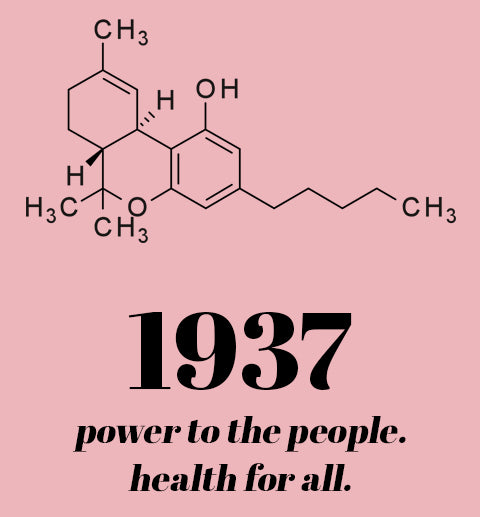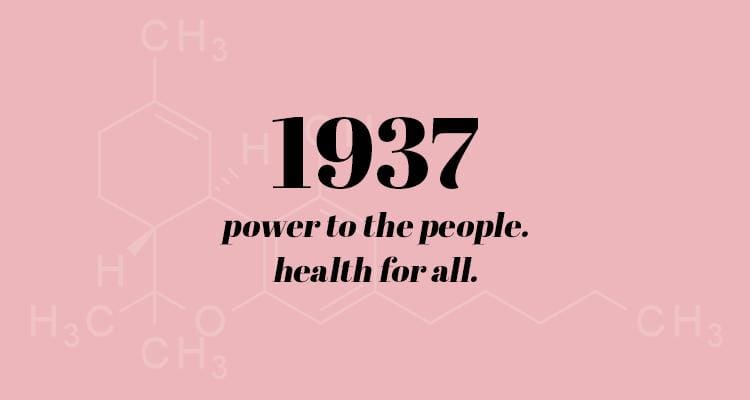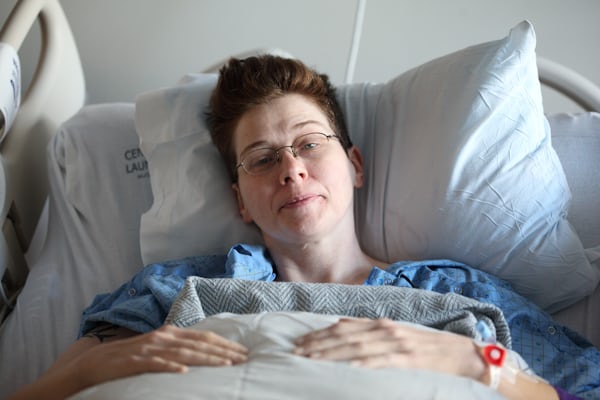How Does CBD Affect Cancer?

Almost everywhere you look, there's more and more information about the positive effects of cannabidiol (CBD).
Research has shown that CBD is effective in treating a variety of different ailments, from insomnia to anxiety. In addition, there's new research that suggests CBD may be a potential antitumor drug.
While this news is exciting, it's important to note that not enough research has been done on the effects of CBD on cancer to definitively claim anything. More research must be done before it can be stated that CBD can help treat or prevent cancer.
In addition to the research done on CBD and cancer cells, studies have also been done on CBD and the side effects caused by cancer and cancer treatments. These studies evince that cannabidiol may help ease negative symptoms experienced by cancer patients.
Evidence has shown that CBD may help complement other cancer treatments, too. This is incredible news for anyone fighting cancer and wishes to have natural products for their side effects. Below, we'll detail everything we know about how CBD interacts with cancer and chemotherapy treatments.
Side Effects of Cancer and Chemotherapy
Most people who have been diagnosed with cancer experience a myriad of side effects. Many of these symptoms stem from cancer treatments such as chemotherapy, or from other drugs used to combat the disease.
Chemotherapy is a common treatment for cancer. It uses drugs to prevent cancer cells from growing and dividing by killing the dividing cells. Chemotherapy treatment ranges in effectiveness based on a few different factors, including the severity of cancer.
Although this treatment is a great option for many, it does come with its share of adverse effects. Because chemotherapy cannot distinguish between normal cells and cancer cells, it kills both. This can be very uncomfortable for chemotherapy patients.
A few of the most common side effects experienced by patients include:
· Nausea and vomiting
· Hair loss
· Susceptibility to infections
· Hearing loss
· Fatigue
· Loss of appetite
Also, many cancer patients experience other symptoms as a direct result of the mental and physical stress caused by cancer. This often includes pain, anxiety, and depression.
Fortunately, medications and supplements help mitigate some of those side effects. For those who are interested in a more natural way to deal with the unpleasant effects of cancer and cancer treatments, CBD may be a good option.
How CBD Can Ease Cancer Side Effects
Battling cancer is incredibly difficult, both physically and mentally. The disease itself causes pain and discomfort, and cancer treatments such as chemotherapy often cause many adverse effects.
Fortunately, many of these side effects can be lessened. CBD may help cancer patients with the following:
Pain relief
One of CBD’s best-known uses is pain relief. Many people use CBD for its completely natural pain-relieving benefits.
To understand how CBD affects pain, you must first understand a bit about pain itself. In the human body, most pain is due to inflammation, injuries to the nerves, or pressure on the body’s internal organs.
Inflammation is your body’s defense mechanism against damaged cells, pathogens, and irritants. The inflammation can be uncomfortable, but it is a sign that your body is working to heal itself.
CBD is very effective at reducing inflammation in the body, which helps to reduce pain. This is noted in a study by the Journal of Experimental Medicine, which suggests that cannabinoids suppress inflammatory pain. The study found that “cannabidiol (CBD) […] and its modified derivatives significantly suppress chronic inflammatory and neuropathic pain.”
This is just one of many studies that have demonstrated that CBD can be a therapeutic option for patients with chronic pain. Cancer patients who are suffering from pain due to the disease or treatment may find some relief through using CBD.
Nausea relief
Studies have also found that CBD can ease nausea. Unfortunately, cancer patients often deal with is extreme nausea and frequent vomiting.
One research study concluded that adults suffering from chemotherapy-induced nausea and vomiting may find relief from oral cannabinoids such as CBD. It stated that data from animal experiments revealed that CBD may be “especially useful in treating the more difficult to control symptoms of nausea and anticipatory nausea in chemotherapy patients.”
The article goes on to say that cannabis, particularly CBD, is a very effective option for treating persistent nausea and vomiting caused by chemotherapy treatments.
Appetite stimulation
Appetite stimulation is important because cancer patients find it hard to stay nourished and maintain a healthy weight.
Working hand in hand with decreasing nausea, CBD has also been found to increase appetite. A 2016 study on cannabis and clinical cancer care found that cannabis is the “only antiemetic that also increases appetite.” Note: An antiemetic is a drug that treats nausea and vomiting.
While THC, the psychoactive compound found in marijuana, is best known for giving people the “munchies” and drastically increasing appetite, researchers believe that CBD may also have appetite-increasing benefits.
Anxiety relief
Many cancer patients also experience side effects related to their mental health. This includes experiencing the overwhelming effects of anxiety and depression. Regardless of whether the anxiety or depression is caused by the diagnosis of the disease or the cancer treatments themselves, it can all be very difficult to deal with.
One team of Spanish researchers reported in a study that CBD has a notable impact on serotonin levels in the brain. Serotonin is a hormone and neurotransmitter that helps to regulate emotions in the brain.
The study found that CBD enhances the actions of the serotonin receptors and promotes boosted signaling through those receptors. This helps to increase feelings of elation while lowering anxiety.
There's no shortage of anxiety-reducing drugs. Prozac and Zoloft are two of the most commonly used options. Although these drugs can be fantastic options for some people, they often come with side effects of their own.
In the study mentioned above, it was found that CBD may be an even more effective option for treating anxiety disorders than most prescription drugs. Also, the World Health Organization has stated that CBD has not been known to cause any public health-related problems, and it's non-addictive, making it a great alternative to traditional anxiety drugs.
CBD and Cancer Prevention
As I mentioned earlier in the article, research has been done on how cannabinoids affect cancer cells. Both THC and CBD have been found to interfere with the development and spread of cancer cells in the body. This means that cannabinoids may hold the potential to work as anticancer drugs.
Not enough clinical research has been done, however, to prove this efficacy. Science has a long and arduous road to travel before we learn how effective CBD is with preventing and treating cancer.
Is CBD Right for You?
With so many different medications and supplements available online, it's difficult to know what will work for you. Ultimately, it is best to speak with your doctor about the options he or she recommends based on your medical history.
Because CBD is non-psychoactive and non-addictive, it can be a great alternative to many of the prescription drugs designed to help manage the side effects of cancer and its treatments.
If you or a loved one is battling cancer, you may want to consider supplementing treatments with CBD. There's a range of products, from edibles to oils, that are easy to consume. Check out our list of products here.

Jessica has been a freelance writer for four years, with a passion for science and health-related topics. She is also a lover of doing research and genuinely enjoys reading clinical studies, especially if it has anything to do with the emerging research on the health benefits of CBD. Jessica has a degree in behavioral science. She is a travel addict and an avid League of Legends player. She is also a proud dog mom to a Husky and an Australian Shepherd, so she’s frequently covered in dog fur and utterly exhausted from their constant shenanigans.




